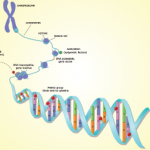The de-methylation process and the gain of 5hmC might offer a therapeutic window, she said.
Recent findings raise the possibility of, “whether by modulating the DNA methylation and de-methylation dynamics, we can actually change or modulate OA pathology.”
ad goes here:advert-1
ADVERTISEMENT
SCROLL TO CONTINUE
“A broader idea is just to also think about the OA epigenome—the mapping of the OA epigenome—even beyond DNA methylation changes, and to figure out the target genes of these genomic changes and to identify whether the modulation of the OA epigenome, per se, can be a new therapeutic strategy for OA.”
Thomas R. Collins is a medical writer based in Florida.
ad goes here:advert-2
ADVERTISEMENT
SCROLL TO CONTINUE
Second Chance
If you missed this session, it’s not too late. Catch it on SessionSelect.
References
- Tsezou A. Osteoarthritis year in review 2014: Genetics and genomics. Osteoarthritis Cartilage. 2014 Dec;22(12):2017–2024.
- Fernandez-Tajes J, Soto-Hermida A, Vazquez-Mosquera ME, et al. Genome-wide DNA methylation analysis of articular chondrocytes reveals a cluster of osteoarthritic patients. Ann Rheum Dis. 2014 Apr;73(4):668–677.
- Taylor SE, Smeriglio P, Dhulipala L, et al. A global increase in 5-hydroxymethylcytosine levels marks osteoarthritic chondrocytes. Arthritis Rheumatol. 2014 Jan;66(1):90–100.
- Taylor SE, Li YH, Wong WH, et al. Genome-wide mapping of DNA hydroxymethylation in osteoarthritic chondrocytes. Arthritis Rheumatol. 2015 May;67(8):2129–2140.
- Jeffries MA, Donica M Baker LW, et al. Genome-wide DNA methylation study identifies significant epigenomic changes in osteoarthritic cartilage. Arthritis Rheumatol. 2014 Oct;66(10):2804–2815.
- Rushton MD, Reynard LN, Barter MJ, et al. Characterization of the cartilage DNA methylome in knee and hip osteoarthritis. Arthritis Rheumatol. 2014 Sep;66(9):2450–2460.
- Den Hollander W, Ramos YF, Bos SD, et al. Knee and hip articular cartilage have distinct epigenomic landscapes: implications for future cartilage regeneration approaches. Ann Rheum Dis. 2014 Dec;73(12):2208–2212.
